globalwarming
Latest
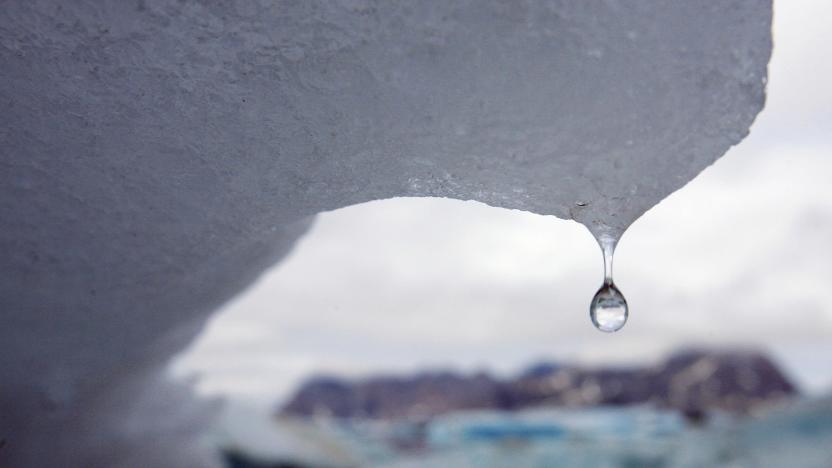
Climate change could spark major humanitarian crisis, experts say
We hear about the continued effects of climate change all the time, but The Guardian reports military experts have another warning. The group said that even if the rise in global warming is held under 2 degrees Celsius, there still could be a major humanitarian crisis to sort out. That figure is widely regarded as a limit beyond which there will be dangerous consequences.

The House Science Committee is retweeting bad science
The House Committee on Science, Space and Technology was roundly criticized for retweeting an opinion-laced, misleading Breitbart News story on climate change. Titled "Global temperatures plunge. Icy silence from climate alarmists," it noted that global temperatures were down a record amount, seemingly defying recent trends of rapidly rising temperatures. However, scientists criticized the article (and its source, The Daily Mail) as being inaccurate and misleading, which led Bernie Sanders to reply, "Where'd you get your PhD? Trump University?"
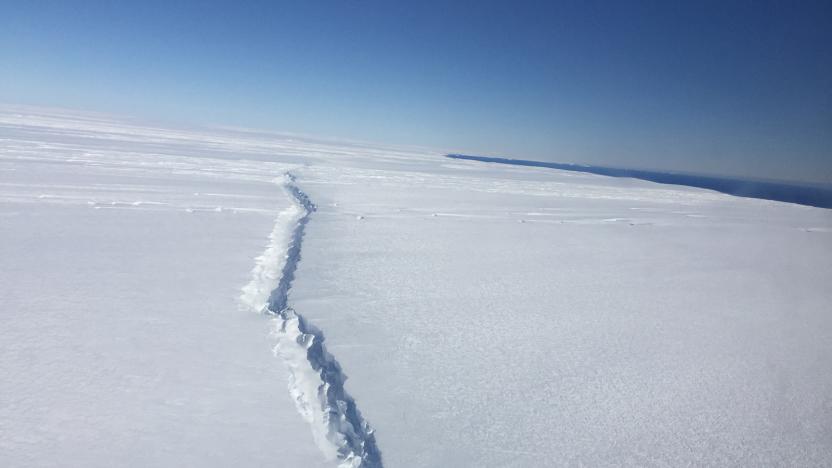
Massive Antarctica ice sheet is cracking due to warming oceans
When a giant (225 square mile) slice of Antarctica's Pine Island Glacier broke off in 2015, scientists wondered exactly what caused it. Well, they now have an explanation... and it's not very reassuring. They've determined through satellite imagery that the break started when a rift was formed at the base of the West Antarctica Ice Sheet, almost 20 miles inland, in 2013. Most likely, warming oceans intruded the sheet at the bedrock well below sea level, triggering cracks that gradually made their way upward. In other words, Antarctic ice could be much more susceptible to breaking up than it seems on the surface, and that separation may be happening faster than researchers expected.

Record swathes of the Great Barrier Reef died in 2016
The Great Barrier Reef lost more coral to bleaching in 2016 than in any other year on record, according to scientists at the ARC Centre of Excellence for Coral Reef Studies. The northern area was hit the worst: A region spanning 435 miles at the tip of the reef lost 67 percent of its shallow-water corals over the past nine months alone.
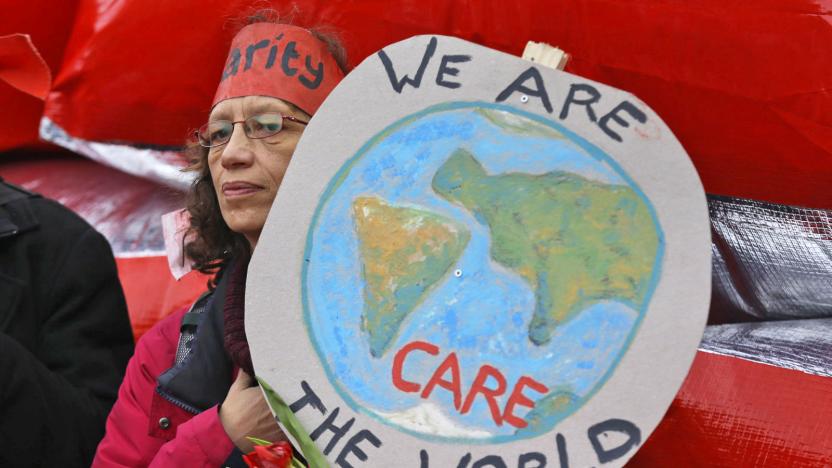
Climate change temperature hikes could be worse than thought
So long as us humans don't cut back on our use of fossil fuels, typical estimates have Earth's average temperature climbing 2.6 to 4.8 degrees Celsius above pre-industrial levels by the year 2100. That kind of climate change would be bad enough, but new data suggests that we might be underestimating the temperature shift. Researchers studying a reconstruction of 784,000 years of climate data now suspect that the real hike could be much higher, between 4.8C and 7.4C. They noticed that the climate appeared more sensitive to greenhouse gases whenever it was warmer -- and guess which way the planet's temperature is headed right now?

The Engadget Podcast Ep 14: Welcome to the Terrordome
Trigger warning: This episode in a solid hour of Donald Trump talk. If you're still with us, strap in. Dana Wollman, Nathan Ingraham and Devindra Hardawar join host Terrence O'Brien to talk about how social media traps us in echo chambers. The they'll envision what the world of tech and science looks like under a President Donald Trump. Hint: Things are a little bleak.
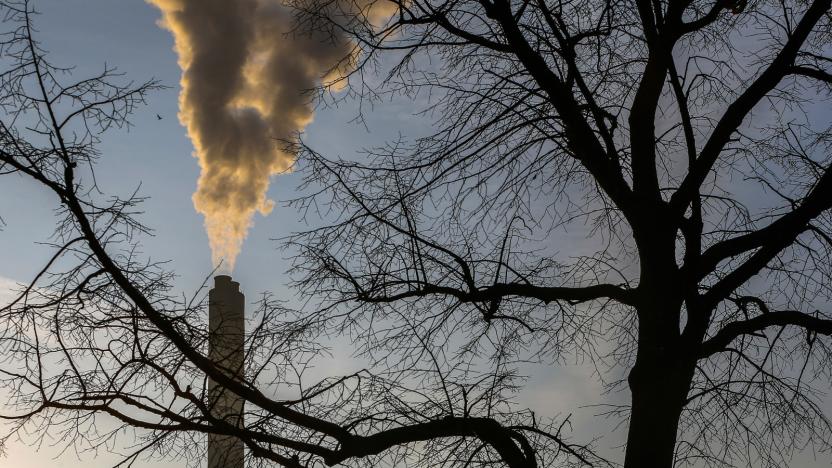
Planet Earth might be the biggest loser under President Trump
Deny it all he wants, Donald Trump did in fact tweet that global warming is a hoax perpetrated by the Chinese to damage American manufacturing. But, let's give him the benefit of the doubt and say that since 2012 his opinion on the matter has evolved. Even if he no longer considers the concept of climate change to be a conspiracy cooked up by China, he still clearly doubts the science, and that will have significant consequences.
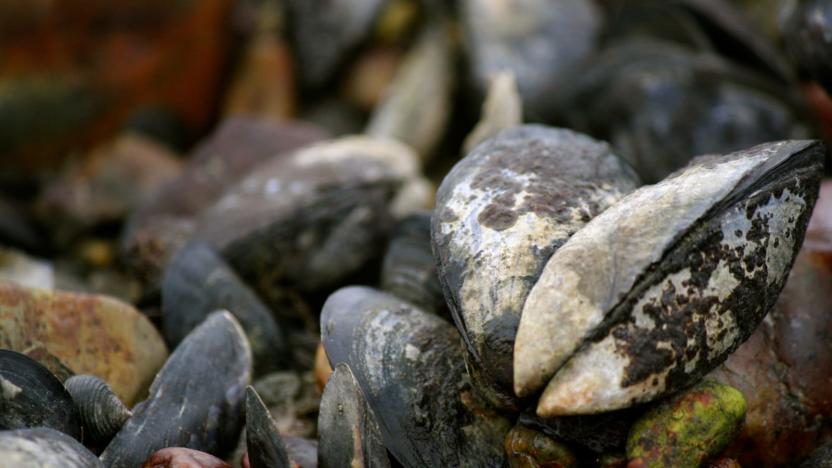
Robot mussels help measure the effects of climate change
The mussels you see on the shoreline might not just be soaking up some rays... they could be key to studying climate change. An research team has published data from robotic mussels whose sensors have been collecting temperatures for the past 18 years in a bid to monitor climates around the world. By recording the body heat of the real mussels around them every 10 to 15 minutes, the artificial sea life can track and predict global warming in situations where it's most likely to have a pronounced effect. Mussels are highly dependent on air temperature and sunlight for warmth, so they're more reliable gauges of an ecosystem's health than many other techniques. If they're too hot, something is likely wrong.
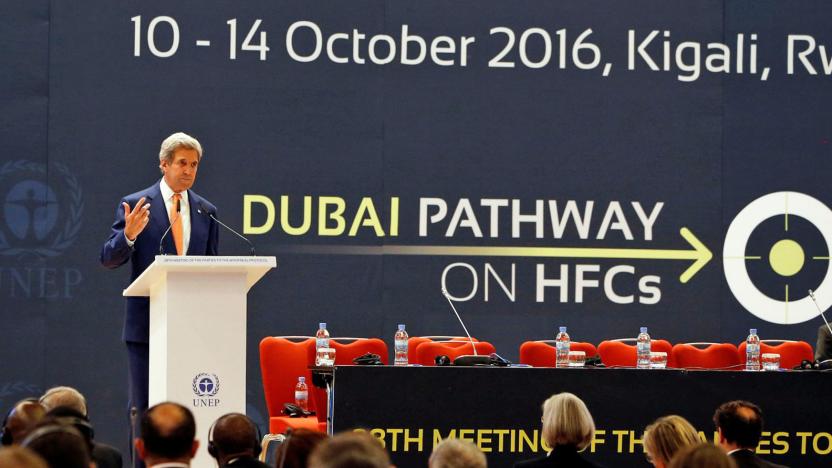
Kigali Amendment reached to cut use of planet-warming HFCs
Today, more than 170 nations have settled on a plan to cut the use of hydrofluorocarbons (or HFCs), a refrigerant that causes warming in the Earth's atmosphere. Called the Kigali Amendment for the location of negotiations in Rwanda, it's the result of seven years of work to expand the Montreal Protocol reached in 1987. That deal phased out the use of ozone-depleting chemicals, and by adding to it, this agreement carries its legally binding weight as a treaty, without needing to wait for ratification like last year's Paris Agreement.
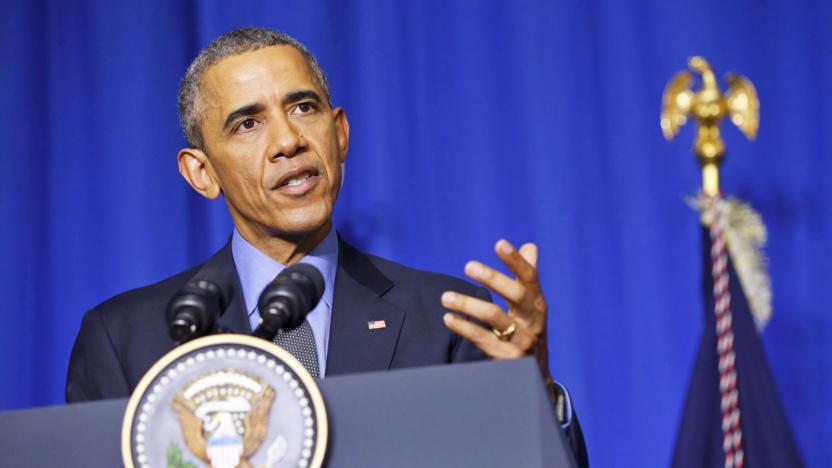
White House hopes to fight climate change with data sharing
Despite some scary evidence that climate change is affecting weather patterns and even shifting how the Earth moves, 43 percent of Americans wouldn't spend a buck a month to fight it. With Congressional deadlock standing in the way of a national strategy to combat it, the White House has launched its own endeavor to find solutions. In typical Obama fashion, it involves making government data public. The Partnership for Resilience and Preparedness (PREP) will give organizations access to troves of environmental information so they can make their own plans to counter climate change.

Bill Nye lands a Netflix show
Everyone's favorite bow-tied scientist is back with a Netflix series. Bill Nye is making a return to TV via a talk show, called Bill Nye Saves the World, set to debut in Spring, 2017.

ICYMI: Studying the 1700's clouds for pollution clues
try{document.getElementById("aol-cms-player-1").style.display="none";}catch(e){}Today on In Case You Missed It: Scientists at CERN constructed a large chamber to replicate the cloud environment before the world's Industrial Revolution got its start after 1750. The thought had been that there were far fewer clouds on Earth then, but already results are pointing to a different reality that could help guide present day modeling of global climate change. If you want to take a peek at the continent colonizing study showing we were taught lies in history class, that's here. The toaster of your five-year-old's dreams? That's here. As always, please share any interesting tech or science videos you find by using the #ICYMI hashtag on Twitter for @mskerryd.

NASA maps the thawed parts of the Greenland ice sheet
NASA has created the first map of the bottom of the Greenland ice sheet, showing which parts have begun thawing and which remain frozen as ever. This is the first time what's underneath the surface of the massive block of ice has been mapped, because the only access scientists have to it is a few bore holes. They've been trying to find out what's going on underneath for a long time, since it's essential for predicting the sheet's movements in the future. "If the ice at its bottom is at the melting point temperature, or thawed," said NASA Goddard glaciologist and team leader Joe MacGregor, "then there could be enough liquid water there for the ice to flow faster and affect how quickly it responds to climate change."
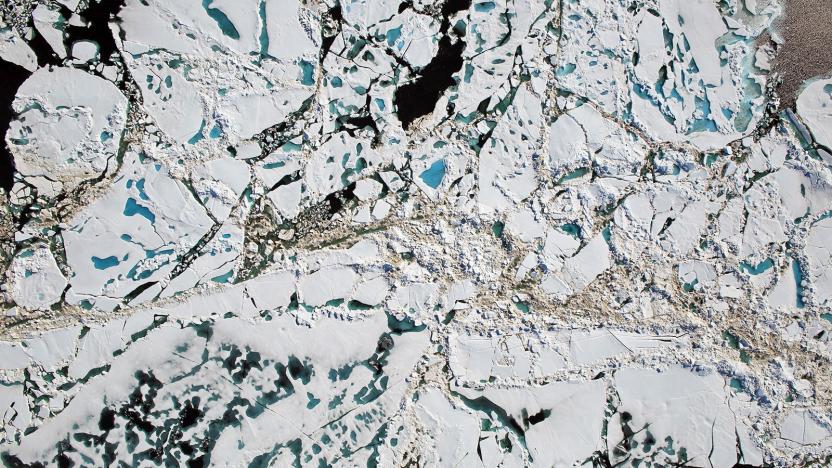
June marked 14 straight months of record high temperatures
Thanks to the ocean warming effects of El Niño and the global warming effects of humans in general, planet Earth just experienced its warmest June on record, the National Oceanic and Atmospheric Administration reports today. The extremely warm June marks 14 straight months of record-breaking warmth, and the longest hot streak on record.

Climate change is pushing clouds up and toward the poles
For the first time, researchers have found evidence that global warming caused by humans is affecting clouds -- and not in a good way. A study by team from the Scripps Institution of Oceanography shows that clouds are being pushed up and out of mid-range latitudes toward the poles. "It's really the first credible evidence that we have of climate change and clouds in the observed record ," says Scripps atmospheric scientists Joel Norris. The cloud shift could push temperatures even higher than predicted, and also shows the need to improve atmospheric measurements.
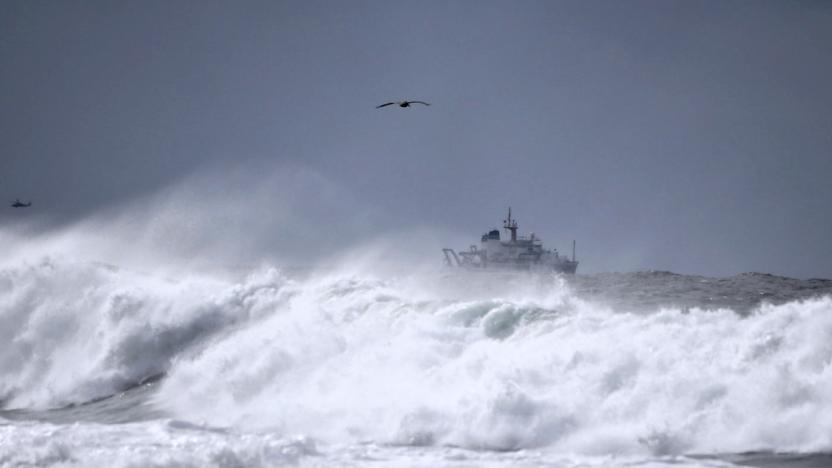
Ocean waves and temperatures can predict extreme summer heat
Predicting the weather typically caps out around 10 days in advance for certain factors, but a new study could extend that up to almost two months. By measuring the surface temperature of oceans from 1982 to 2015, specifically in 2012, The New York Times writes that a team of researchers (PDF) noticed correlations between a pair of precursors leading to hotter days in parts of North America: precipitation deficits and "anomalous atmospheric wave trains." The former is pretty easy to understand. The latter, standard parts of atmospheric flow caused by wind, are abnormal patterns of crests and troughs leading to shore.

Supreme Court decision may derail Obama's emissions pledge
At the Paris climate talks, President Obama pledged that America, historically the world's biggest polluter, would reduce its carbon emissions 32 percent by 2030. However, the Supreme Court has ruled that it will not enforce his Clean Power Plan, now under the jurisdiction of the Environmental Protection Agency (EPA). The court voted along party lines, with the five conservative judges ruling that states don't have to start making emissions cuts until lower courts rule on pending challenges.

Folding offshore wind turbines could power 10,000 US homes
The US Department of Energy's plan to generate 20 percent of the nation's electrical power from wind by 2030 is ambitious, to say the least. To pull it off, the turbines will need to be located offshore, where winds are steadier and stronger. However, putting wind turbines in the ocean is also far more expensive, so they need to be enormous in order to make it worthwhile. Researchers from Sandia National Laboraties have come up with a design that features 650-foot blades -- over two football fields long -- that can generate up to 50 megawatts of power.

2015 was the hottest year on record
If you needed further signs that humans are likely warming the planet, you just got it. NASA and NOAA have independently determined that Earth surface temperatures in 2015 were the hottest since record-keeping began in 1880, beating the 2014 average (the previous record) by a sizeable 0.13 degrees Celsius. Most of the on-record warming happened within the past 35 years, too. And you can't pin this on weather patterns like El Niño. While those conditions certainly contributed to 2015's higher temperatures, it was the "cumulative effect" of decades of warming that led to the new high.

Xprize challenge offers $20 million to curb fossil fuel emissions
Sadly, carbon dioxide emissions aren't going away just yet. However, the Xprize crew would like to at least see those emissions do something besides accelerate climate change. They're launching the NRG COSIA Carbon Xprize, a competition that will hand out a total of $20 million to teams that convert fossil fuels' CO2 output into genuinely useful products. The 4.5-year challenge will be separated into two tracks (one for coal emissions, the other for natural gas), both of which will offer a pool of $2.5 million for hitting initial lab milestones and a $7.5 million grand prize for whoever succeeds in the real world.










